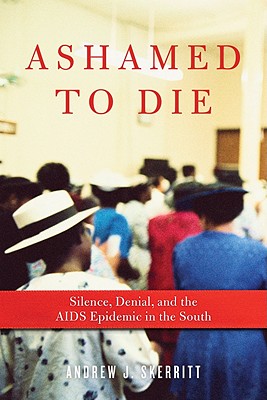Book Review: Ashamed To Die: Silence, Denial, And The Aids Epidemic In The South
Book Reviewed by Kam Williams
"HIV/AIDS remains a significant public health and social justice crisis in the United States, and the South in particular is heavily burdened� Poverty, poor education, and limited community resources conspire against people who live in the rural South…
Even as America has dispatched billions to fight this disease overseas, our small rural communities remain vulnerable to the sinister threat of HIV/AIDS. The enemy isn’t just the physical illness. It’s ignorance; it’s the guilt and shame-inducing silence that kills our young�
HIV/AIDS is more than a disease—it is a symptom of the larger problems of social inequalities and racial/ethnic health disparities… It�s time to end the silence and to provoke an eruption of empathy, compassion and community action to alter the sad trajectory of AIDS in our small towns."
—Excerpted from Chapter One (page 11)
When the AIDS epidemic exploded about 30 years ago, it initially ravaged
the gay community. But the number of homosexuals infected dropped
dramatically due to a combination of safe sex education and medical
breakthroughs.
Simultaneously, however, the AIDS rate among blacks has continued to
skyrocket to the point where two-thirds of the new female cases in the
country are African-American, meaning a sister is 15 times as likely to
become HIV+ as a white woman. And these statistics are even worse in the
South where eight of the states with the highest infection rates are
located.
But Andrew Skerritt didn�t need help from the CDC to appreciate the toll the
plague is taking on black folks in the region. For the London-born,
professor of journalism at Florida A&M University could observe how such
factors as denial, shame, racism and poverty had collaborated to prevent
AIDS patients from receiving proper treatment.
In Ashamed to Die, he chronicles that societal failing as witnessed in the
Clover, South Carolina, a typical tiny town where talk about AIDS is
considered taboo. Consequently, many of the infected remain in denial and
undiagnosed, especially since, "the health department couldn’t force a
person to be tested even if a contact gave them names of people exposed tom
AIDS."
Nonetheless, symptoms of the lethal illness eventually do appear, as the
body becomes susceptible to a variety of opportunistic infections. Sadly,
the author found that "Caring for people with AIDS is the kind of thankless
work few are willing or even equipped to do."
And in the case of Dr. Robert Ball, he ended up broke and "a pariah in his
own community" when he was abandoned by his regular patients because he
allowed those with AIDS to share the same waiting room and office. And not
only did the 42 year-old physician eventually lose his practice, but his
wife and his home, too.
Still, his plight pales in comparison to that of those dealing with the
debilitating ailment on a day-to-day basis. "Those dying of AIDS long for
comfort, someone to hold their hands," since "no one wants to die alone,"
Skerritt concludes.
Apparently, no one wants to die forgotten either. For, in fascinating
fashion, he proceeds to put a face on the disease by devoting individual
chapters to the life stories of several ill-fated patients and devoted
caretakers.
A sobering manifesto practically begging African-Americans to acknowledge
the omnipresence of an escalating plague decimating the community.


